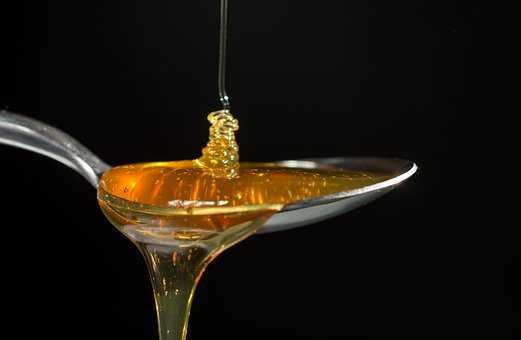Why honey doesn’t spoil
- Acidity. Most bacteria prefer neutral growing conditions. The enzymes bees use to break down the sugar in nectar make it more acidic and less appealing for bacterial growth.
- Sugar content. Honey has a lot of sugar, but only 18% water, which is not sufficient for most bacteria to grow. Honey has so much sugar that it's hygroscopic - which is the ability to absorb moisture out of the air. When honey is exposed to humidity, more water is added, and when the water content rises above 25%, bacteria will eventually be able to grow. That is why the container of honey should be closed.
- Antimicrobial compounds. Hydrogen peroxide is produced as a byproduct of some of the enzymes used by bees to digest more complex sugars. Some honey types also contain antimicrobial compounds such as defensin-1, an antibiotic produced by bees.
Combined, these three properties mean honey is very stable as long as it's not exposed to outside moisture or humidity.
40
219 reads
CURATED FROM
IDEAS CURATED BY
The idea is part of this collection:
Learn more about health with this collection
How to prioritize and simplify your life
The importance of rest and relaxation
The benefits of slowing down
Related collections
Similar ideas to Why honey doesn’t spoil
Where honey comes from
- Honey is made by bees. Bees eat nectar, a sugar-rich liquid that is produced by flowers.
- The bee stores most of the nectar in their "honey stomach." At the hive, bees regurgitate the nectar, blowing bubbles to evaporate the water. They also mix the nectar with their digestive enzym...
Honey: The Eternal Food
- Part of the magic is that honey, which is basically a kind of sugar, has a negligible amount of moisture that does not let any bacteria or microorganisms spoil it.
- Honey is also acidic, which does not let things survive in it.
- Other hygroscopic sugars like molasses have a ...
Manuka Honey History
- The honey bees species (Apis mellifera) that are necessary for commercial honey production are not native ones of New Zealand but arrived in 1839 due to an English beekeeper, Mary Bumby.
- She managed to bring the skeps (woven baskets) of honey bees in a six-month voyage fr...
Read & Learn
20x Faster
without
deepstash
with
deepstash
with
deepstash
Personalized microlearning
—
100+ Learning Journeys
—
Access to 200,000+ ideas
—
Access to the mobile app
—
Unlimited idea saving
—
—
Unlimited history
—
—
Unlimited listening to ideas
—
—
Downloading & offline access
—
—
Supercharge your mind with one idea per day
Enter your email and spend 1 minute every day to learn something new.
I agree to receive email updates

